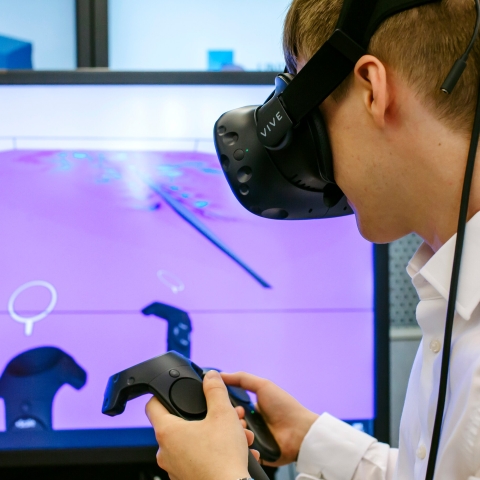
This career guide is designed to help University of Portsmouth students and recent graduates explore job options, key employers, and entry routes into the Computer Game Technology sector.
With the arrival of digital distribution, games now have a bigger audience than ever – making it a great time to get into the industry.
There is great scope for artistic creativity and expression, but whilst previously technological constraints would have required a large team to produce a high-quality games product, there is now potential for a lone individual or small team to launch and promote a project to a worldwide audience.
The opportunities available to you as a computer games technology graduate are varied. Roles can range from game developer to animator, from lead programmer to DevOps engineer. You can even consider setting up your own games related company.
Explore the Computer Game Technology Career Guide
Getting started in computer game technology
Take the first steps to beginning your career in computer game technology.

Gaining experience in computer game technology
Find out how to build your experience in the computer games technology industry while you study.

Finding a job in computer game technology
Explore different ways you can find employment after you graduate.







